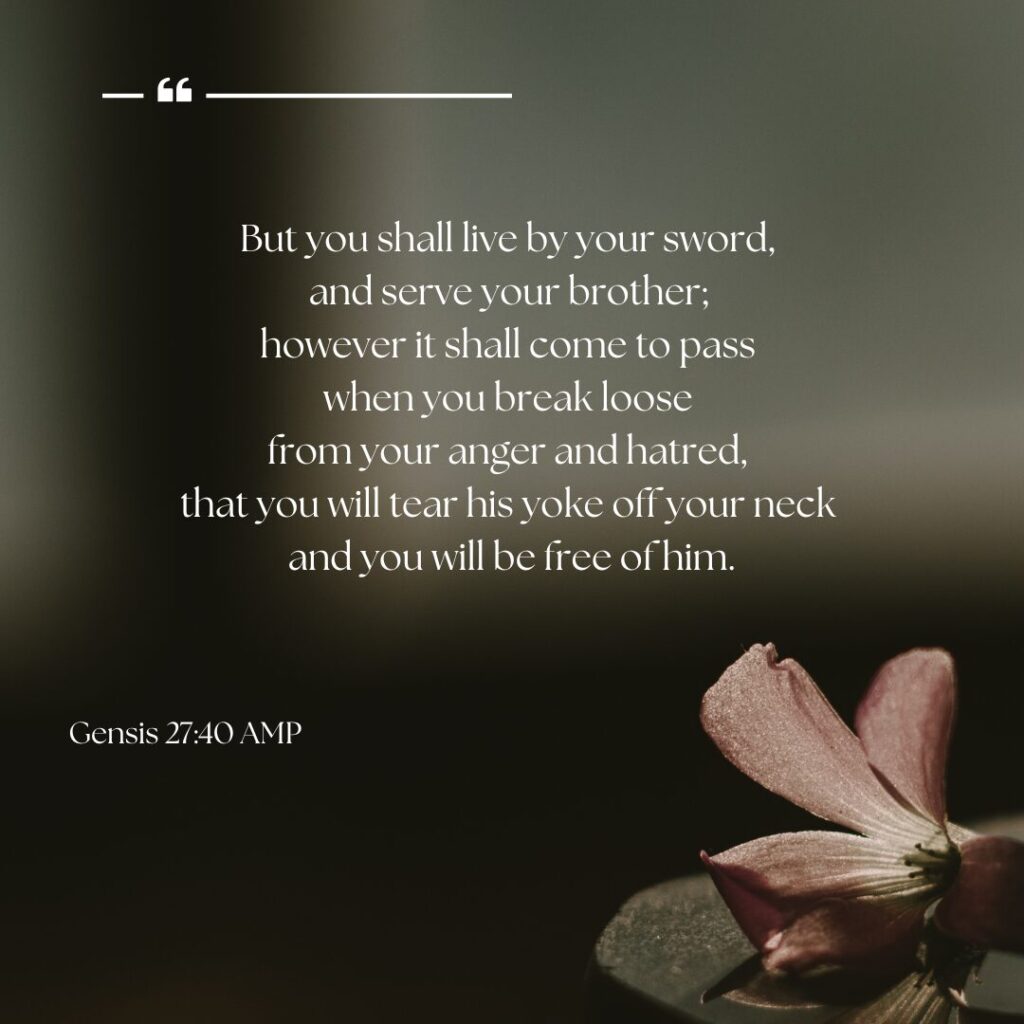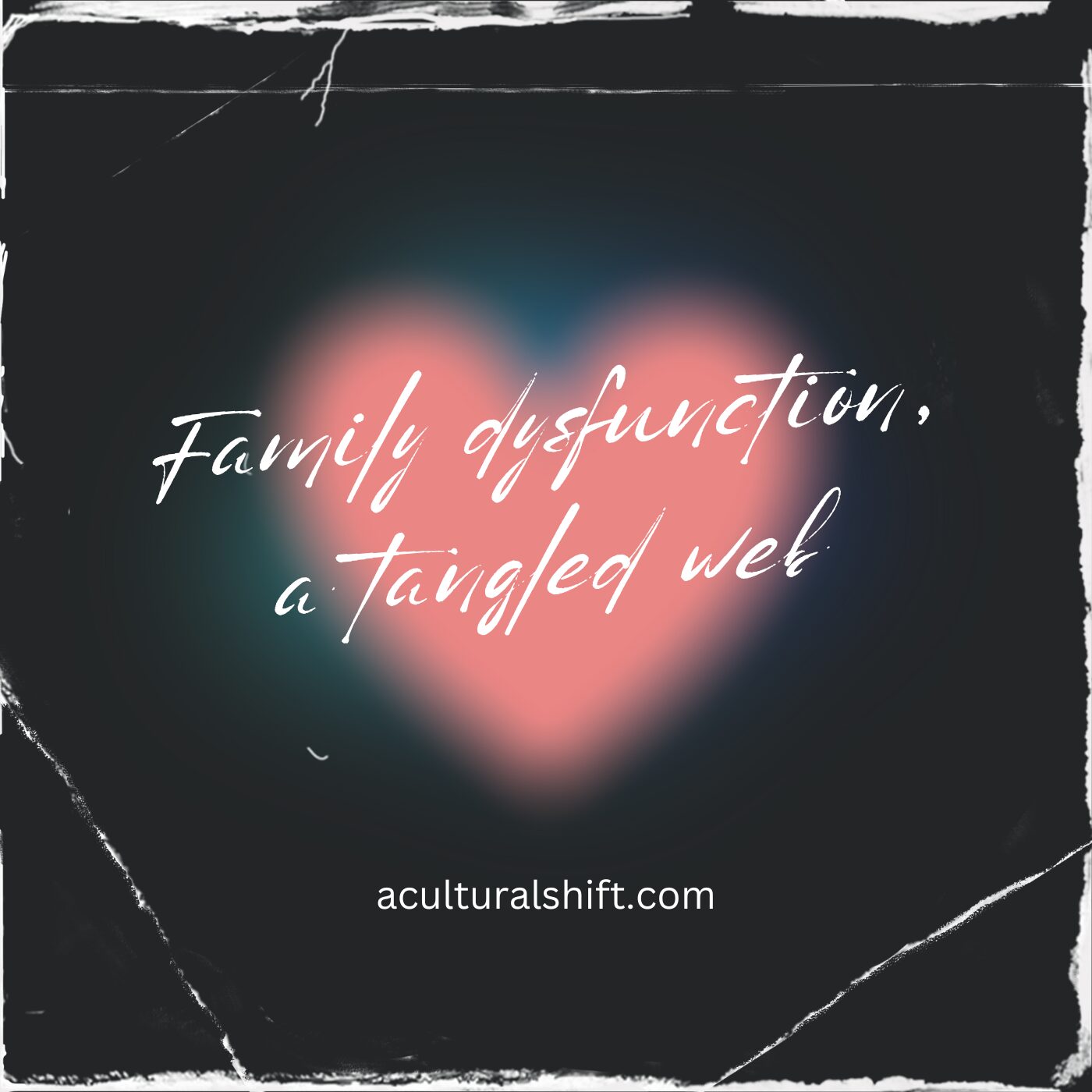Do you think family dysfunction is a new thing? I just finished reading the story of Abraham and Sarah. And while I’ve read their account many times, I’m still confounded by the twists and turns in their story. Dysfunction permeates Abraham’s family and lineage. Abraham had a dispute with Lot and then Sarah and Hagar had a tumultuous relationship. The problems between the women resulted in Abraham fathering both of their sons. All of this led to more conflict than there is time to tell. Trouble followed Abraham’s family. One thing is for certain: there’s no lack of fodder for thought.
The same issues that plagued Abraham and Sarah followed their son, Isaac. Family dysfunction wasn’t invented in recent generations; it has been around since the beginning of time.
At odds
Isaac ended up marrying Rebekah. And she gave birth to twins, Jacob and Esau. They were brothers at odds. And Isaac and Rebekah were parents at odds. They followed the troubled pattern set by none other than Abraham and Sarah. Isaac favored Esau, and Rebekah favored Jacob. Their favoritism contributed to their sons’ troubled relationship for many, many years.
“When the boys grew up, Esau became a skilled hunter. He loved to be out in the fields. But Jacob was a quiet man and stayed among the tents. Isaac loved Esau because he hunted the wild animals that Isaac enjoyed eating. But Rebekah loved Jacob.”
Genesis 25:27,28 NCV
These brothers couldn’t have been more different from one another. As their lives unfolded, so did the problems between them. Because Esau was an outdoorsy kind of guy, he was out and about working in fields and forests. Anyone who works outside knows that your appetite is stoked out in the sun. One day, after coming in, he was very hungry. Jacob offered him a meal for the price of a bowl of beans (see Gen. 25:30-32). These beans were what Esau thought were worth his birthright at the time. Later on, he realized his mistake.
And the plot thickens. (The Old Testament has more drama and family dysfunction than many current soaps of today.)
Family dysfunction led to torment
In Genesis 27, you can read that when Isaac was old, he wanted to pronounce a blessing on his sons. This was customary in that time. The blessing of the firstborn was, as you can imagine, significant. Rebekah schemed with Jacob to steal Esau’s blessing. Once again, Esau was left without his right. He cried bitterly, remembering that he lost not only his birthright to Jacob, but also lost the blessing to him.
“Esau said to his father, ‘Do you have only one blessing, my father? Bless me, me as well, my father.’ So Esau raised his voice and wept.“
Genesis 27:38 NASB
Esau was tormented for years by his hatred for his brother. Jacob, on the other hand, was tormented by his pride and deceptive nature. Even so, the blessing his father pronounced on him followed him. He prospered everywhere he went. However, he also reaped what he sowed. That’s a rabbit trail for another day.
He had to face his brother
“After that Esau hated Jacob because of the blessing from Isaac. He thought to himself, ‘My father will soon die, and I will be sad for him. Then I will kill Jacob.’ Rebekah heard about Esau’s plan to kill Jacob. So she sent for Jacob and said to him, ‘Listen, your brother Esau is comforting himself by planning to kill you. So, my son, do what I say. My brother Laban is living in Haran. Go to him at once!'”
Genesis 27:41-43 NCV
Jacob listened to his mother’s advice. He went to Haran and ended up staying with his uncle for many years. This gave Esau’s anger time to simmer. The day came, however, when Jacob returned and fear gripped his heart. He knew he had to face his brother.
Jacob traveled homeward with his family. He got word that his brother was coming to meet him with more than 400 men. Once again, Jacob tried to scheme his way out of a difficult situation. You can read the entire account in Genesis 32. But this time, there was too much going on at once. There was no way out of the conundrum. What was Jacob to do?
There was more than one meeting
There was more than one meeting held in Genesis 32. The meetings were not only between the obvious ones, Jacob and Esau. But also with Jacob, himself, and God (Genesis 32:24-32). At that first meeting, Jacob recognized himself for who he was, a master deceiver and manipulator. When he saw himself for who he was, God changed his name. He was to be called “Israel,” meaning “prince with God.”. This recognition changed him from the inside out. What a match that must have been for he never walked the same again. He walked closely with God from that time onward.
Then, the next meeting with Esau had to take place. One would have thought that Esau, with his 400 men, was ready to finish Jacob. But this was not the case. For Esau apparently had heeded the advice his father had given him years before when Jacob had stolen his blessing.

The yoke of Jacob on Esau wasn’t what Jacob did to him. The yoke of Jacob was Esau’s own anger and hatred. Freedom came to Esau when he let his anger and hatred for his brother go.
The same holds true for us. What people do to us isn’t what holds us back from moving forward. We are held back by our own reactions of anger and hatred. The yoke of Jacob is a yoke of our own making. Don’t let Jacob’s yoke hold on to you. Let it go.
The meeting of the brothers
The meeting of the brothers went nothing like anyone expected. Instead, their meeting changed the course of their family history. Family dysfunction gave way to love and forgiveness.
“But Esau ran to meet Jacob and put his arms around him and hugged him. Then Esau kissed him, and they both cried.”
Genesis 33:4 NCV
Jacob’s change of character held true for the rest of his life. The book of Hebrews tells us that Jacob (Israel) died not as a deceiver or manipulator, but as a worshiper:
“By faith Jacob, as he was dying, blessed each of the sons of Joseph, and worshiped, leaning on the top of his staff.”
Hebrews 11:21 NASB
The family dysfunction in Abraham’s line stopped with Jacob and Esau. Both of them had to make a decision to let go. Jacob had to let go of his own faulty character and Esau had to let go of anger and hatred. This happened when they came to terms with themselves and their own faults.
A tangled web of family dysfunction
What a tangled web we weave (seems to be a theme I’m on for the moment). We like to blame the faults of others for our own issues. Of course the actions of others can serve as catalysts for our feelings – but only if we let them. Esau, in the natural sense, had every reason to be offended by his brother’s actions. But his father’s instruction led him to freedom.
Jacob’s yoke binds us only for as long as we let it. Once we let it go, it may be that those we hated become those we love.






Leave a Reply